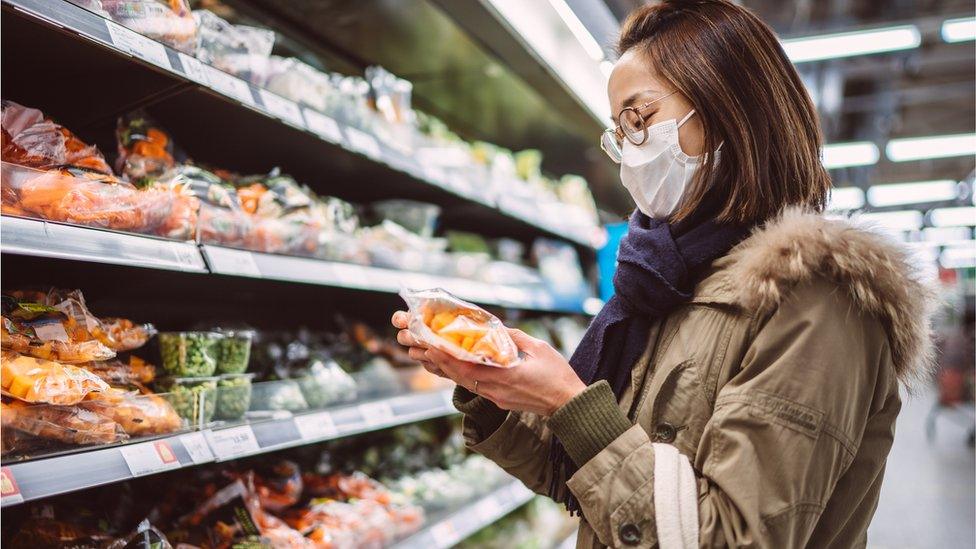Cost of living crisis: Food companies warn of further price rises
- Published

Two of Northern Ireland's biggest food companies have warned consumers to expect further price rises this year.
Food production inputs like fuel, fertilizer and animal feed have experienced rapid inflation over the last year.
Dale Farm chief executive Nick Whelan said only about half of that inflation had been passed to consumers.
He said the business was entering its fourth round of price increases in about six months.
Dale Farm is a dairy business with an annual turnover of about £650m.
It makes consumer brands like Spelga yoghurt and Dromona butter as well as supplying other food businesses like Greggs.
Mr Whelan said: "The inflation that is coming right through the supply chain hasn't probably hit the retail shelves in full yet.
'Challenging news'
"In broad brush, probably about half the inflation has come through to the consumer and the other half is to come. That's challenging news for the consumer."
That was echoed by Justin Coleman, director at Moy Park, which is one of Europe's biggest chicken producers.
He said inflation had started to "creep into the market" around a year ago but had "exploded" over the last four months.
Mr Coleman said that for energy and feed intensive businesses, like poultry production, the rate of inflation was "in and around 20%" compared to the broad UK inflation rate of 7%.
"I don't think the full force of food inflation has hit retail shelves yet," he added.
Both men were speaking to BBC Radio Ulster's Inside Business programme.
Food price inflation is a global phenomenon which has been intensified by Russia's invasion of Ukraine.
Russia and Ukraine are some of the biggest producers in agriculture and food globally.
Russia also produces huge amounts of nutrients, like potash and phosphate - key ingredients in fertilisers, which enable plants and crops to grow.
Natural gas, which had become a lot more expensive even before the war, is needed to produce ammonia, the key ingredient in nitrogen fertiliser.
Combined with higher shipping rates, sanctions on Belarus (another major potash supplier) and extreme weather - this has prompted a big jump in fertiliser prices, adding to a surge in food prices.
Last week official data from Ireland's Central Statistics Office (CSO) suggested the price of fertiliser in March was 149% higher compared to the same month last year.